For nearly 40 years, nestled quietly on the second floor of a French colonial-era building overlooking Hoan Kiem Lake, Ca phe Dinh has stood as a refuge of Hanoi’s past.
While the world outside bustles and transforms, this modest café remains a quiet witness to the city’s heritage and soul.
An enduring icon amid change
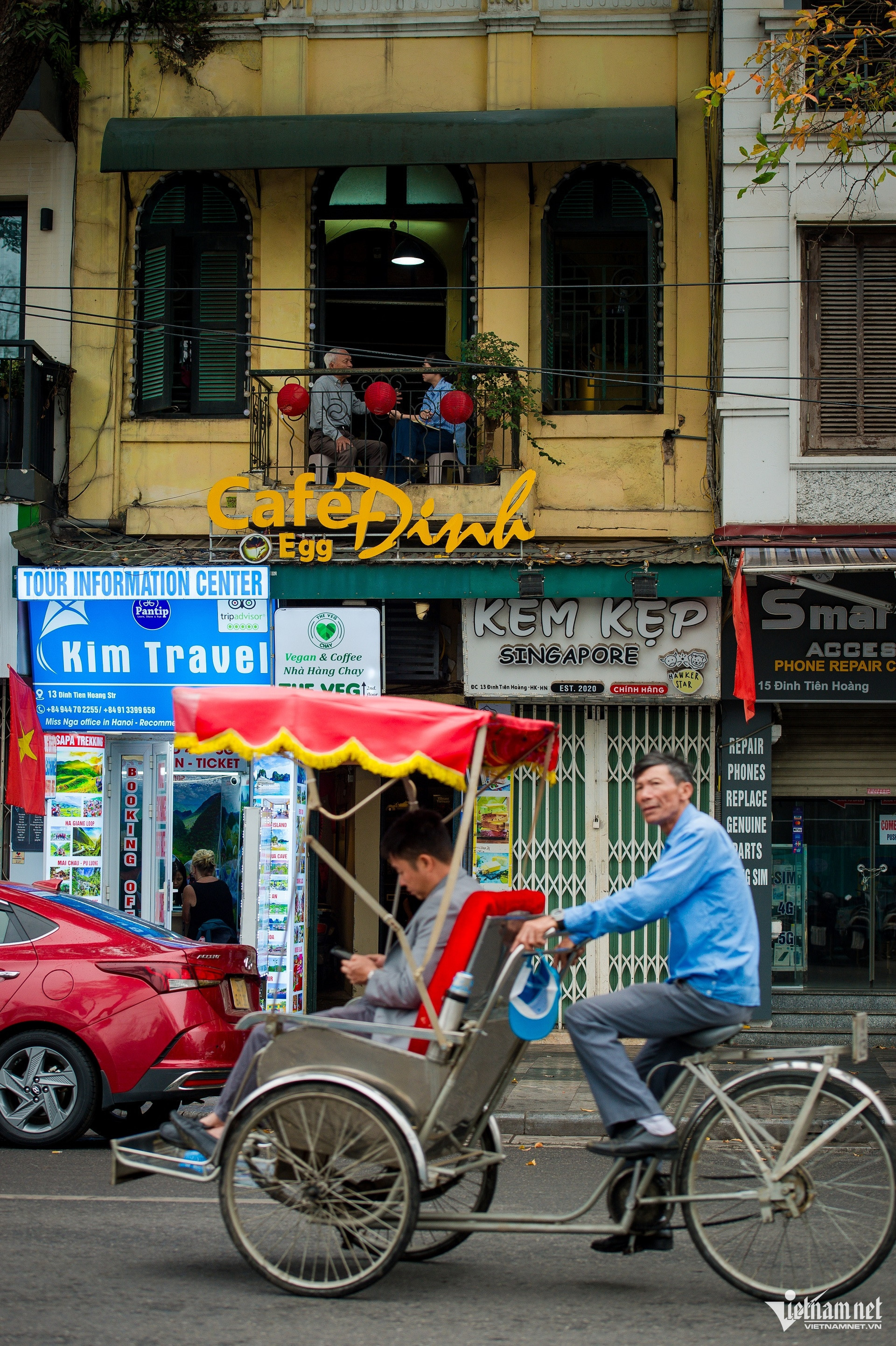
“I’ve been drinking coffee here since I was 18 or 19, when I was a student at Bach Khoa University. Now my son is about to graduate,” said a middle-aged guest, sipping the last of his coffee.
“Dinh Tien Hoang Street has changed so much - crowded, noisy - but Ca phe Dinh still feels the same: aged, calm, and full of memories.”
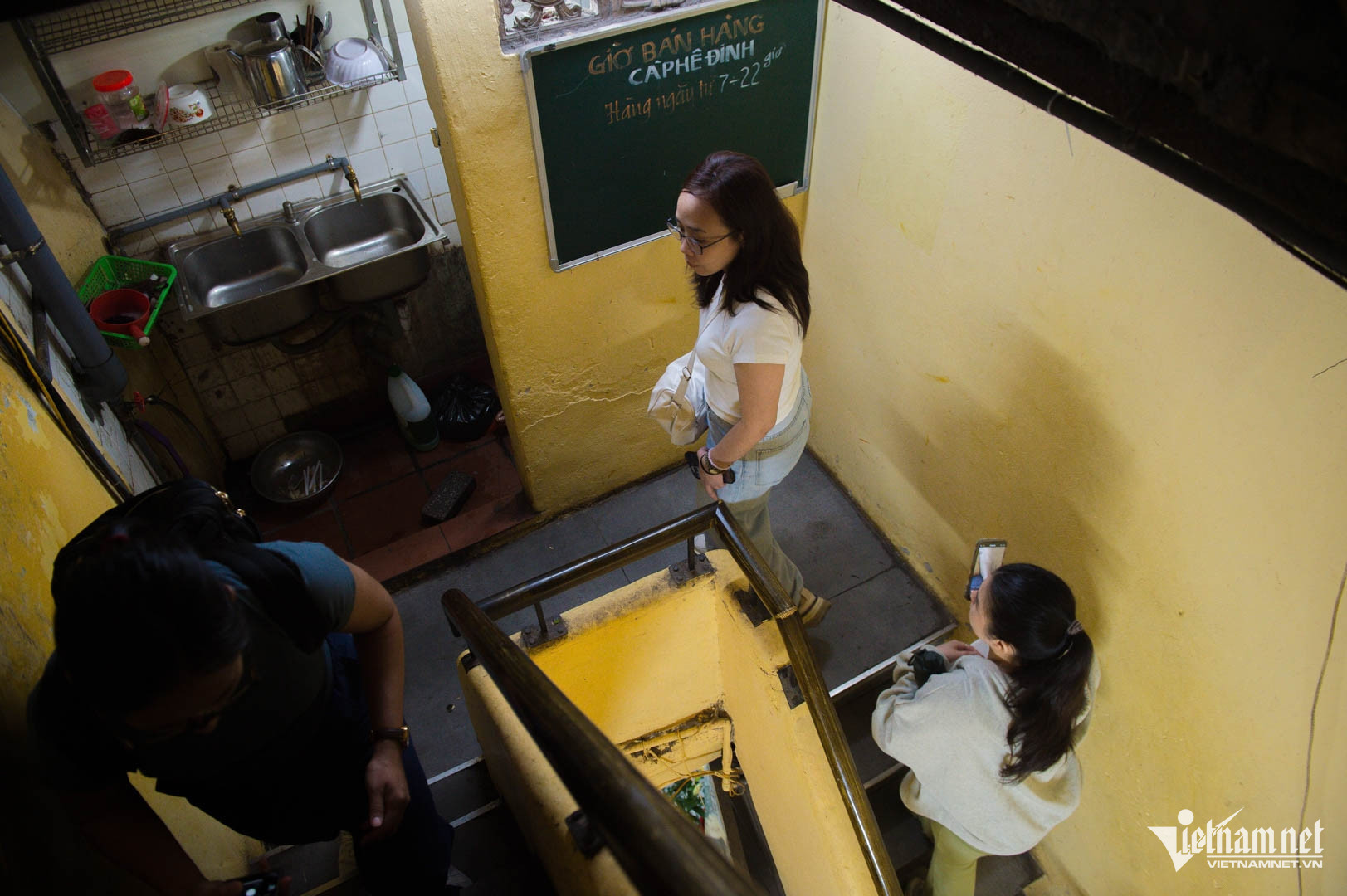
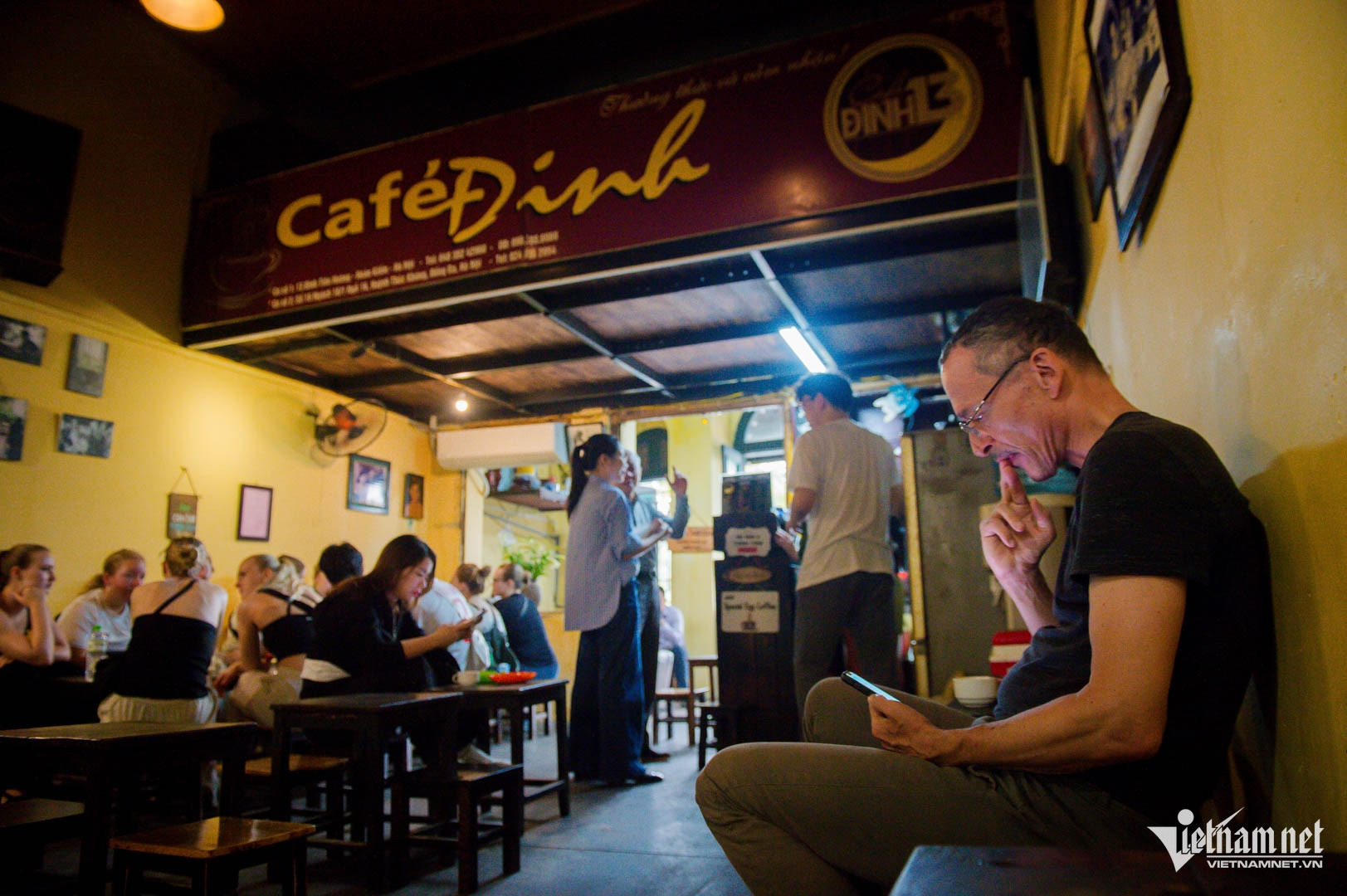
The original Ca phe Dinh space remains on the second floor, where low wooden tables and vintage décor evoke old Hanoi charm.
Just as he left, the café's speakers played the gentle 2000s ballad Em ve tinh khoi. The nostalgic tune floated through the 40-square-meter room with its dark wooden beams, old plaster walls, and faded black-and-white portraits.
Tucked above No. 13 Dinh Tien Hoang Street, Ca phe Dinh was founded in 1987 by Nguyen Thi Bich, affectionately called u Bich by generations of patrons. Her husband, Ta Duy Khoa, now 83, still commutes daily from Huynh Thuc Khang to keep the café running.
More than just coffee

In its early days, the café served mostly retirees and poor intellectuals. Patrons nicknamed it “the poor café.” By the 1990s, students packed the small space, calling it “student café” or “Ca phe u Bich.” Many recall how Bich treated everyone kindly, even allowing students to drink now and pay later.
Bich was the daughter of Nguyen Van Giang, who famously invented egg coffee in Hanoi. Though she trained as a literature teacher, she returned to the family craft after retirement. Khoa helped by sourcing, roasting, and grinding the coffee beans on the rooftop of their home - now the café.
Their egg coffee, inspired by cappuccino but using egg yolk instead of cream, became a signature. “We beat the egg until it foams, serve immediately to avoid the egg turning,” Khoa explained.
Coffee is brewed slowly using traditional phin filters - some over 30 years old. A single 300-gram batch drips for hours, yielding about 1.5 liters of strong, aromatic concentrate.
A place of heritage and heart

Ca phe Dinh’s signature egg coffee is rich, frothy, and served in traditional ceramic cups with a small spoon for the cream topping.
When Bich passed away in 2012, Khoa asked his three children if they wanted to keep the café. They all said yes. “This isn’t just a business,” Khoa said. “It’s our family’s memory, my wife’s legacy.”
Today, Ca phe Dinh is a destination for tourists, especially after being featured on National Geographic’s Street Food Around the World. Travelers like Daniel from Iceland come not only for the coffee but for the ambiance and stories. “Coming here feels like stepping into Hanoi’s past,” he said.
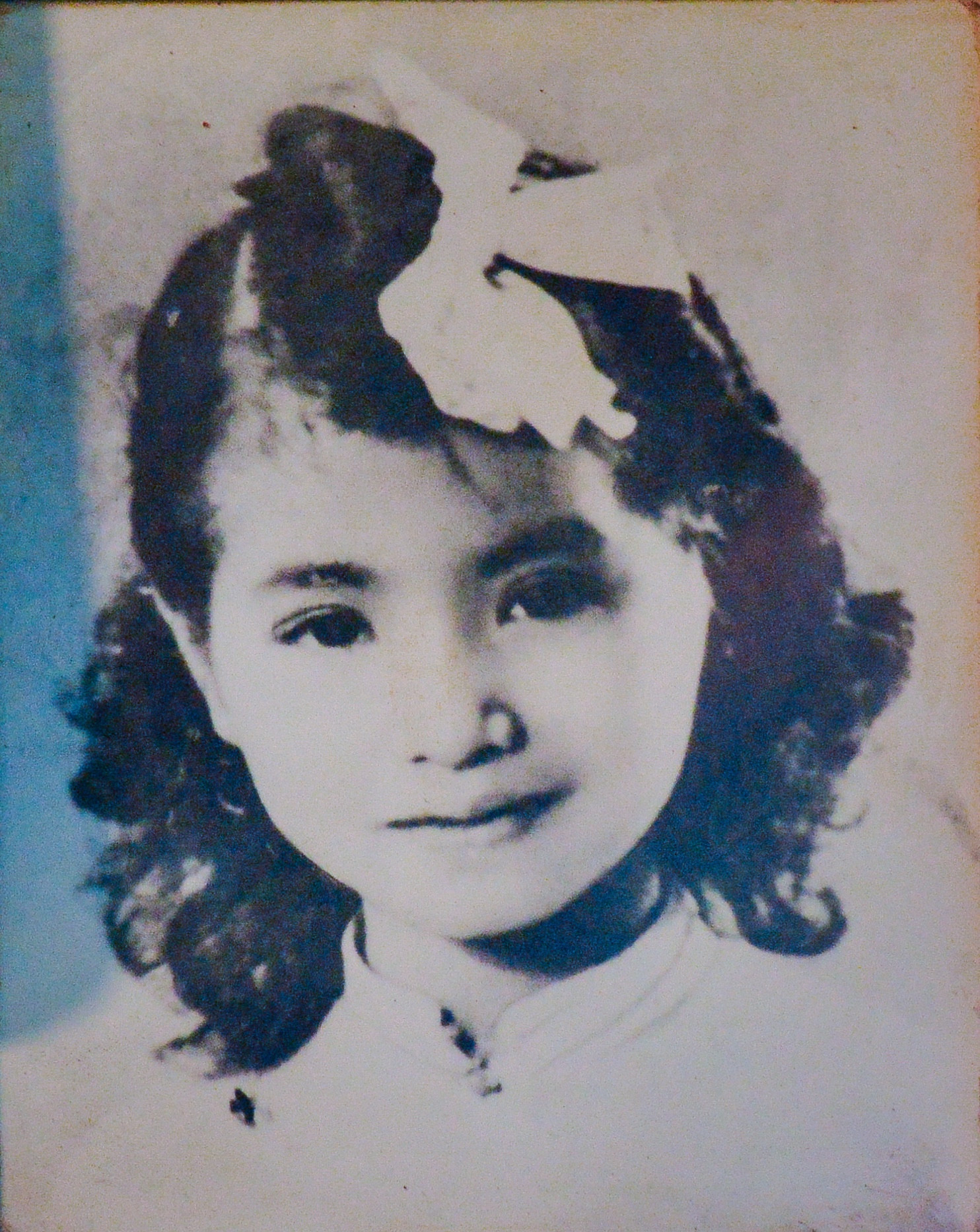
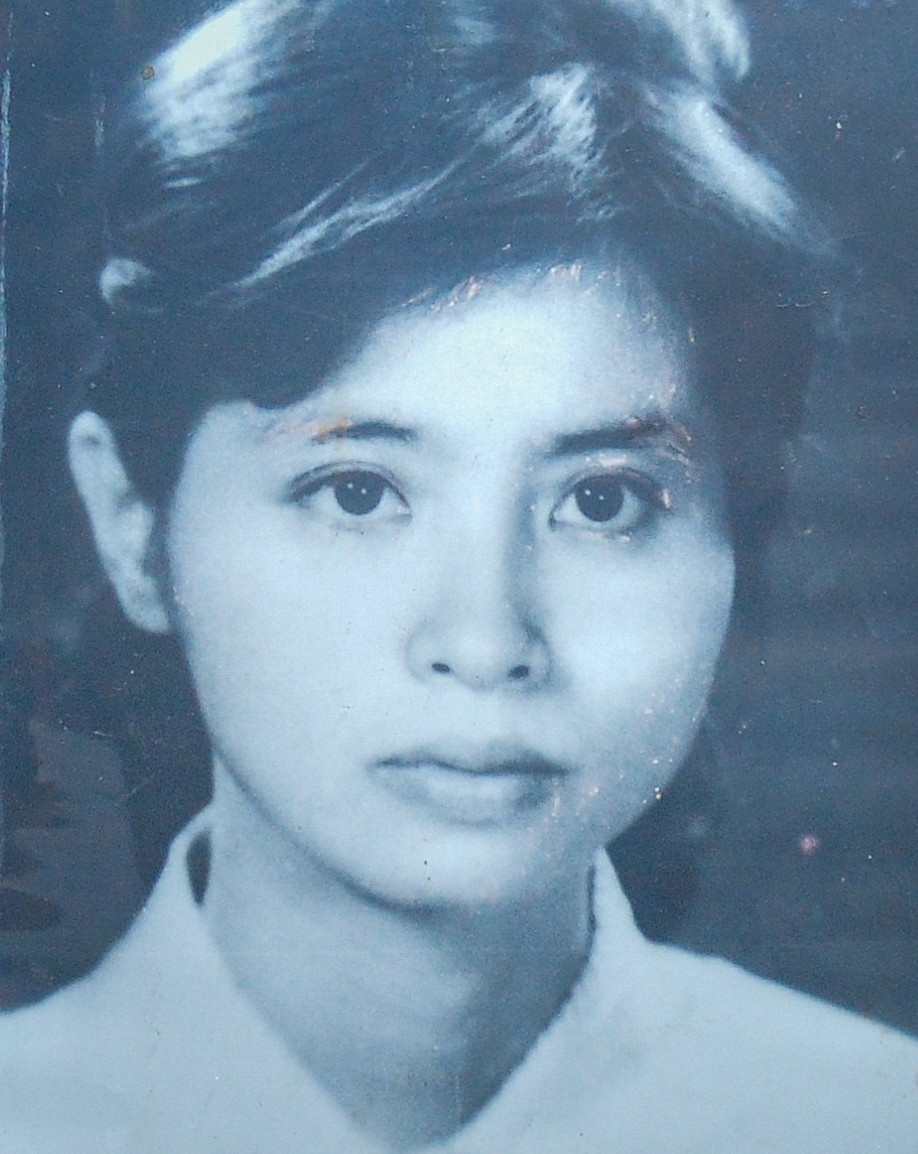
Portraits of Mrs. Nguyen Thi Bich, from childhood to old age, still hang on the café’s walls as a tribute to her legacy.
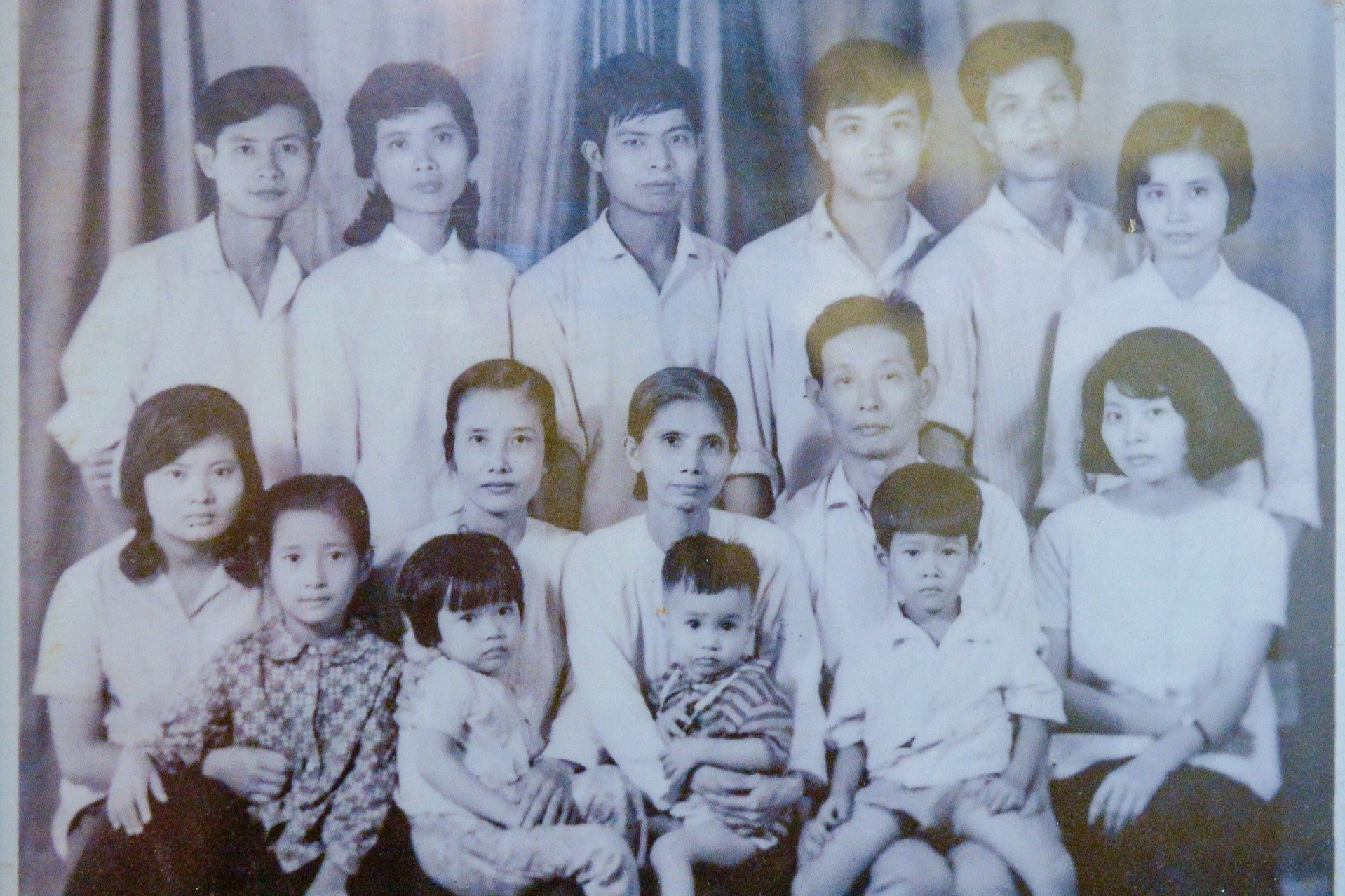
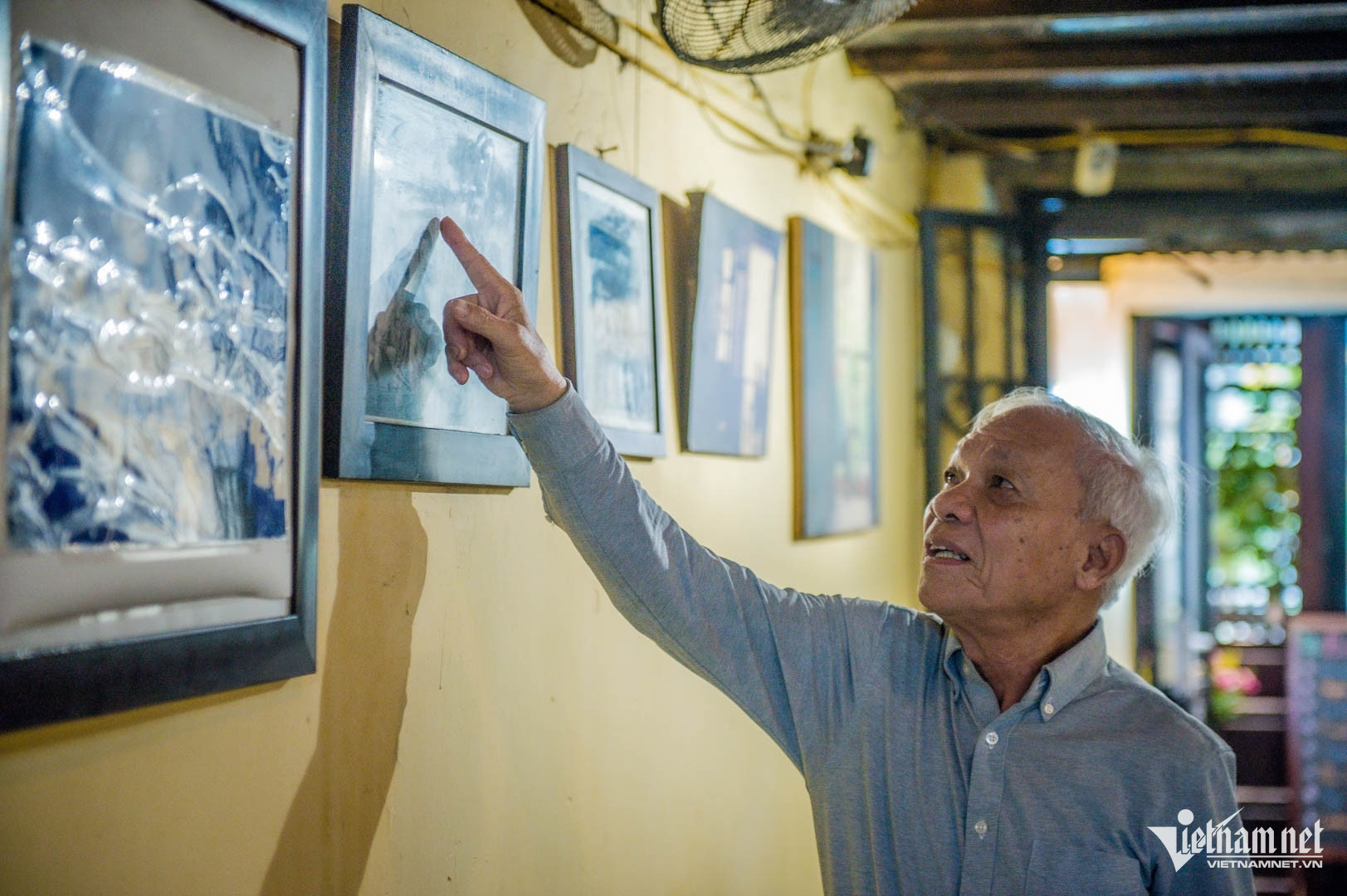
Even after modest renovations to expand seating downstairs, Khoa insisted on preserving the original walls and layout. The view from the iconic balcony, once a coveted seat, is now open to all visitors.
Despite its prime location - what many call “diamond land” - Khoa has never considered selling. “This room holds the memories of our whole family,” he said.
Ca phe Dinh is more than a place to drink coffee. It’s a living time capsule - a space where old Hanoi lingers in every sip, every creaky stair, every melody humming from the speakers.
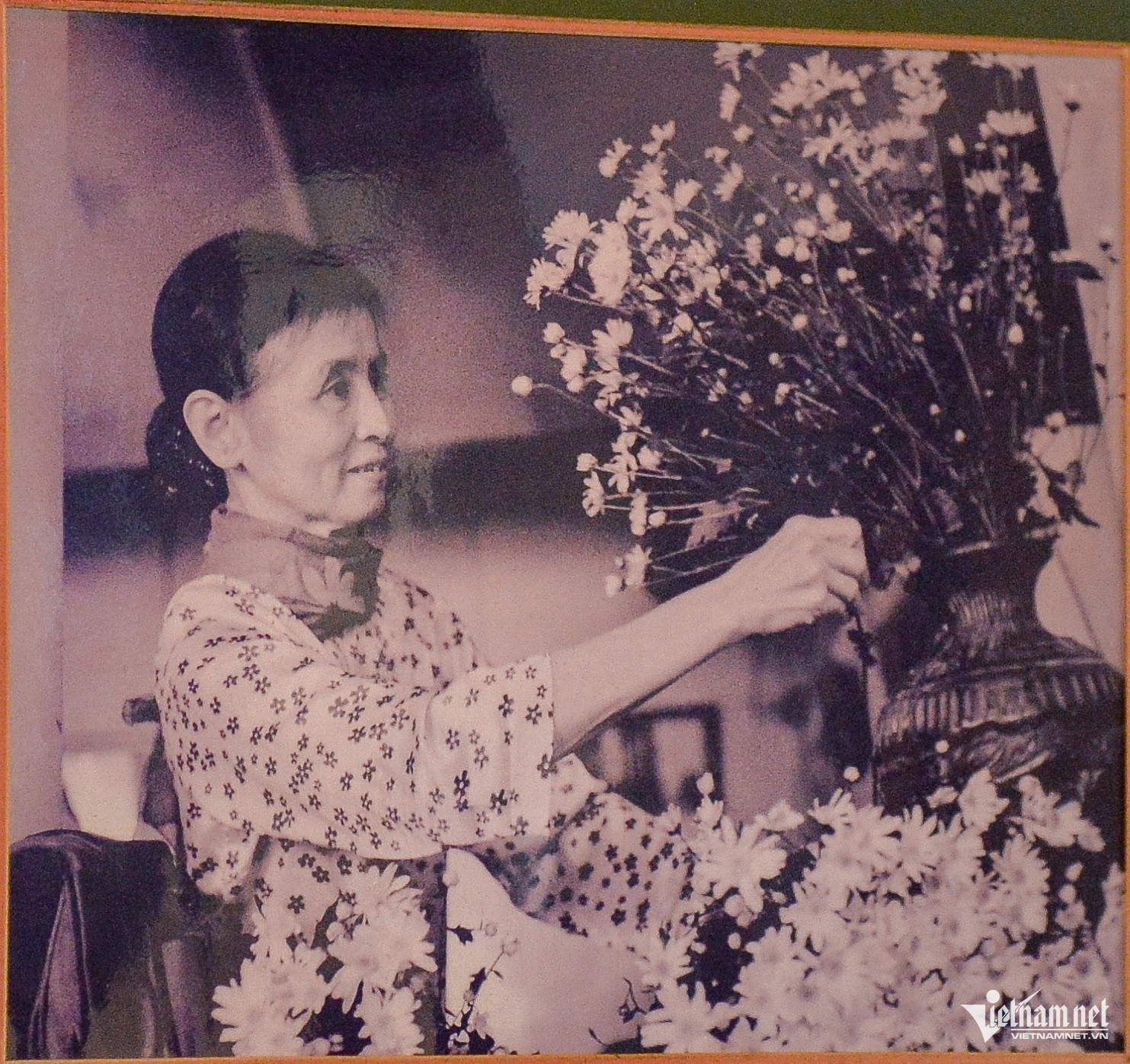
Fresh flowers like lilies and daisies are placed throughout the café, continuing the elegant touch once maintained by Mrs. Bich.
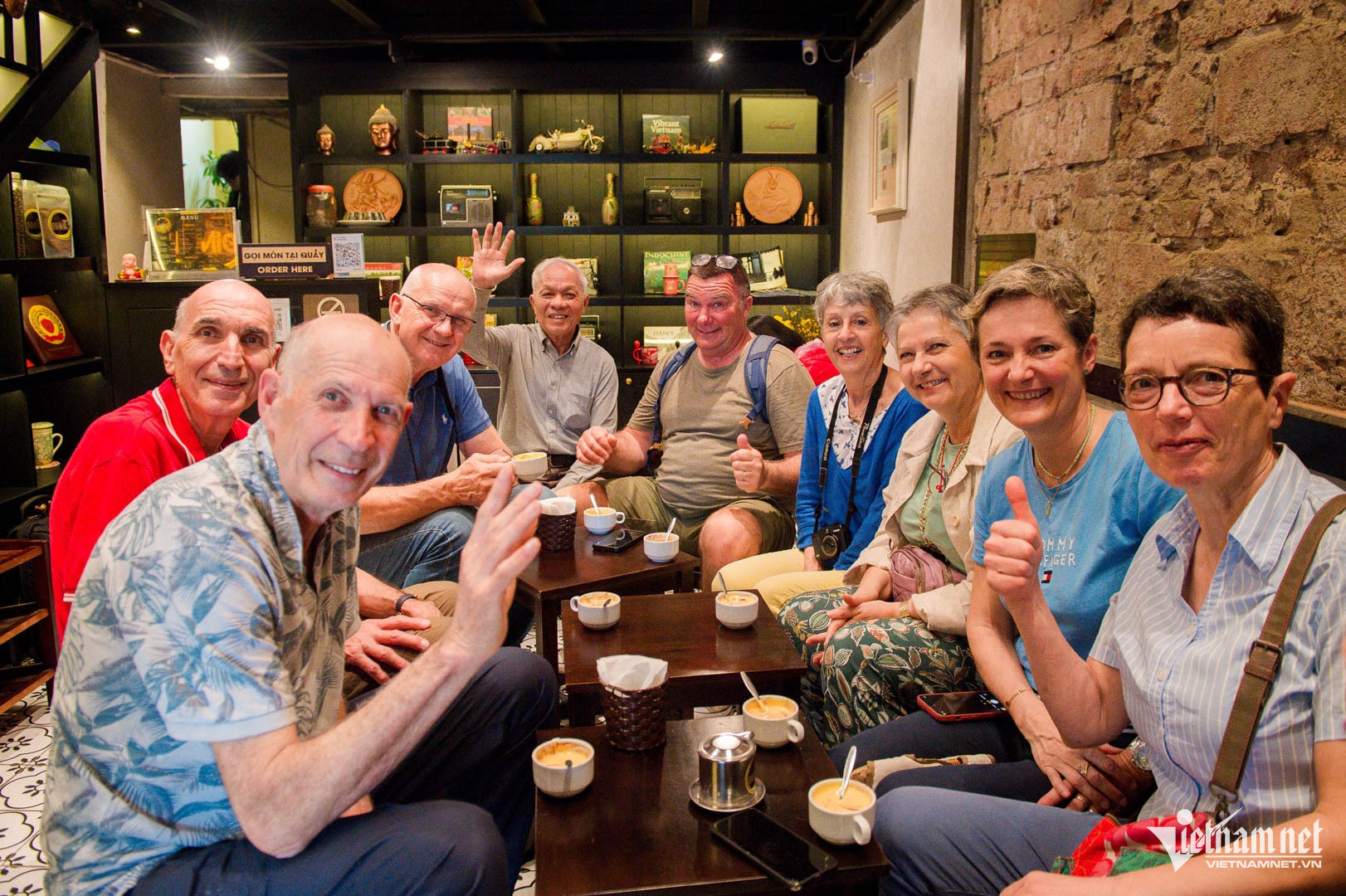
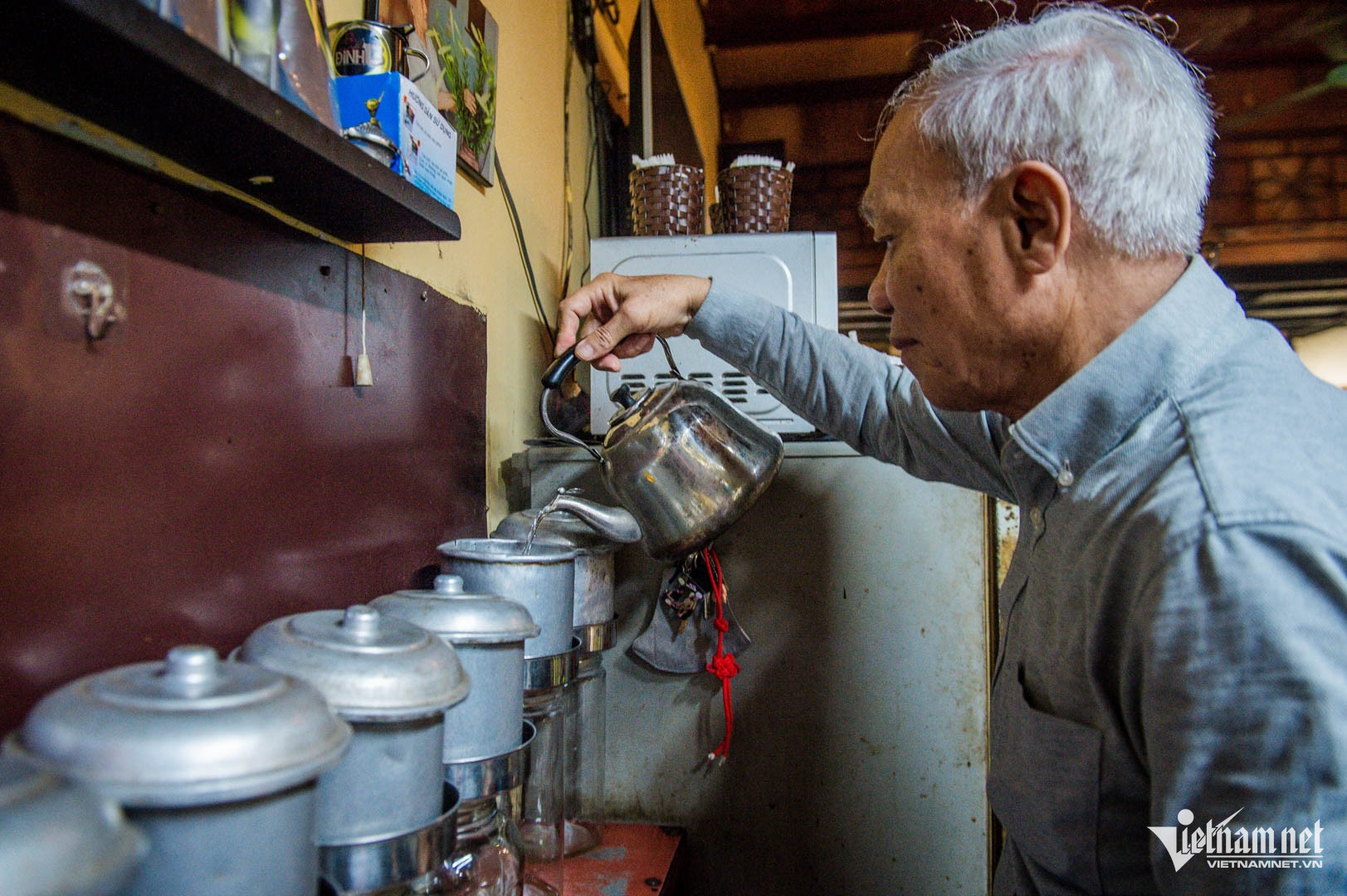
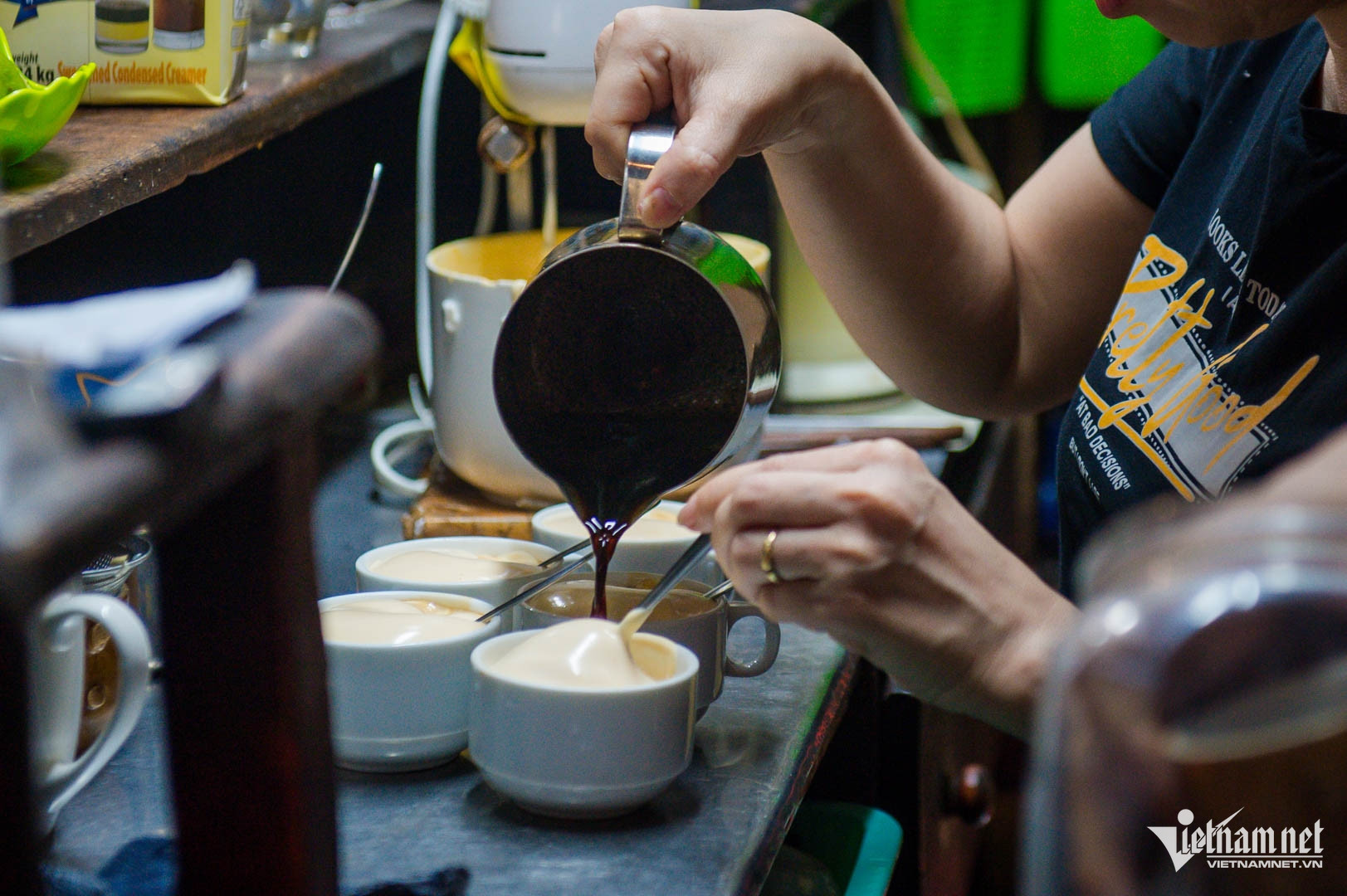
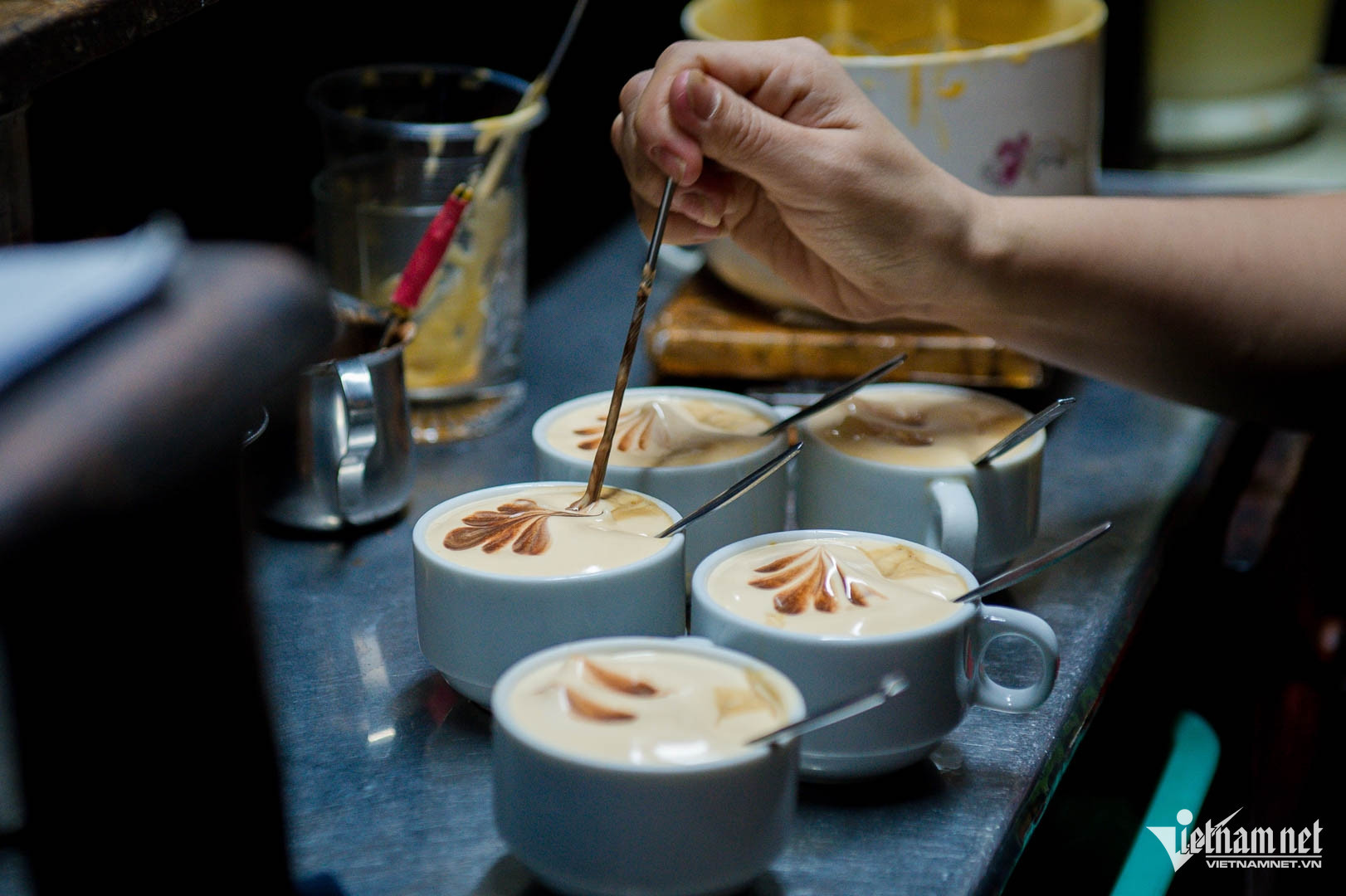
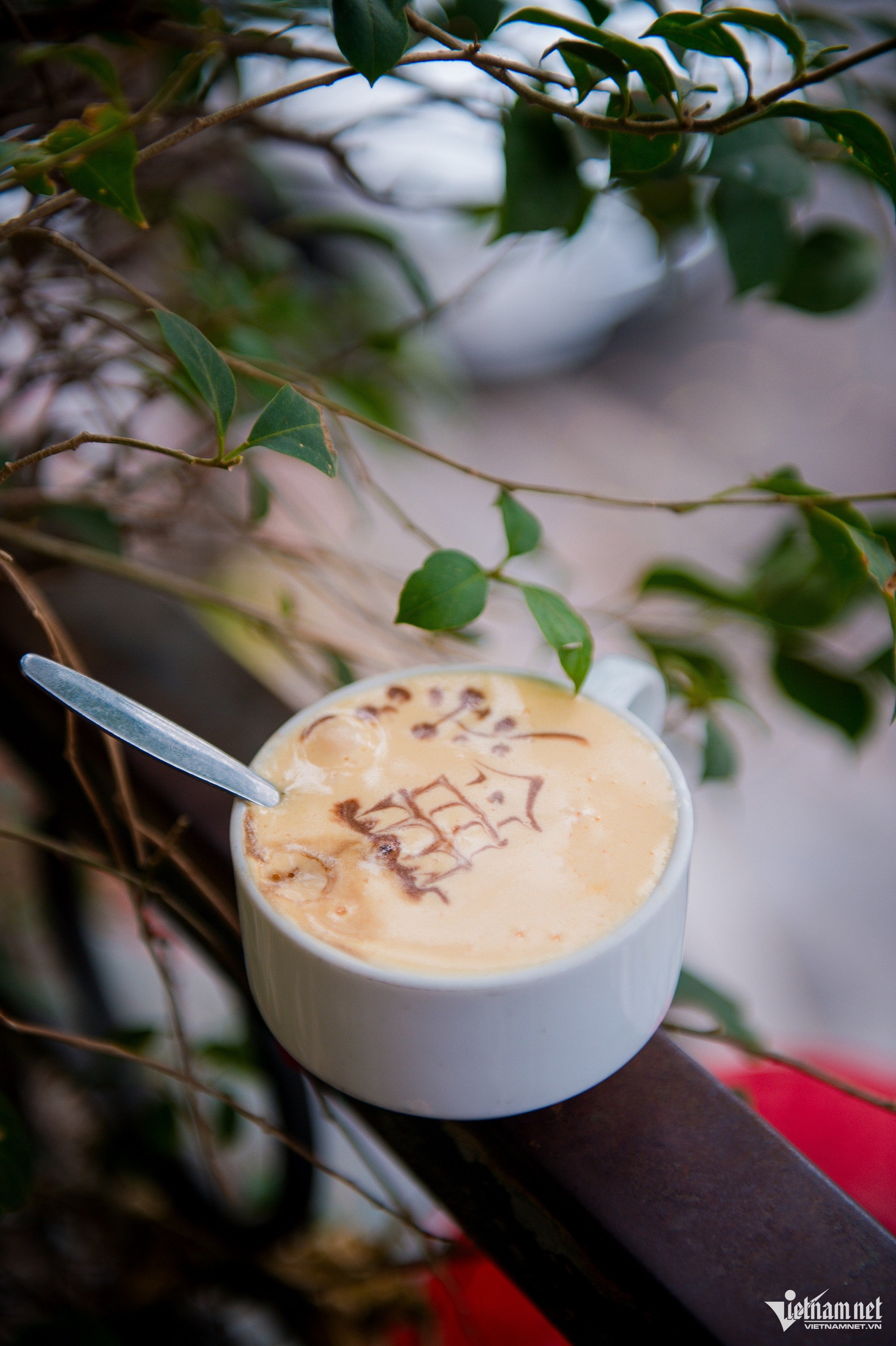
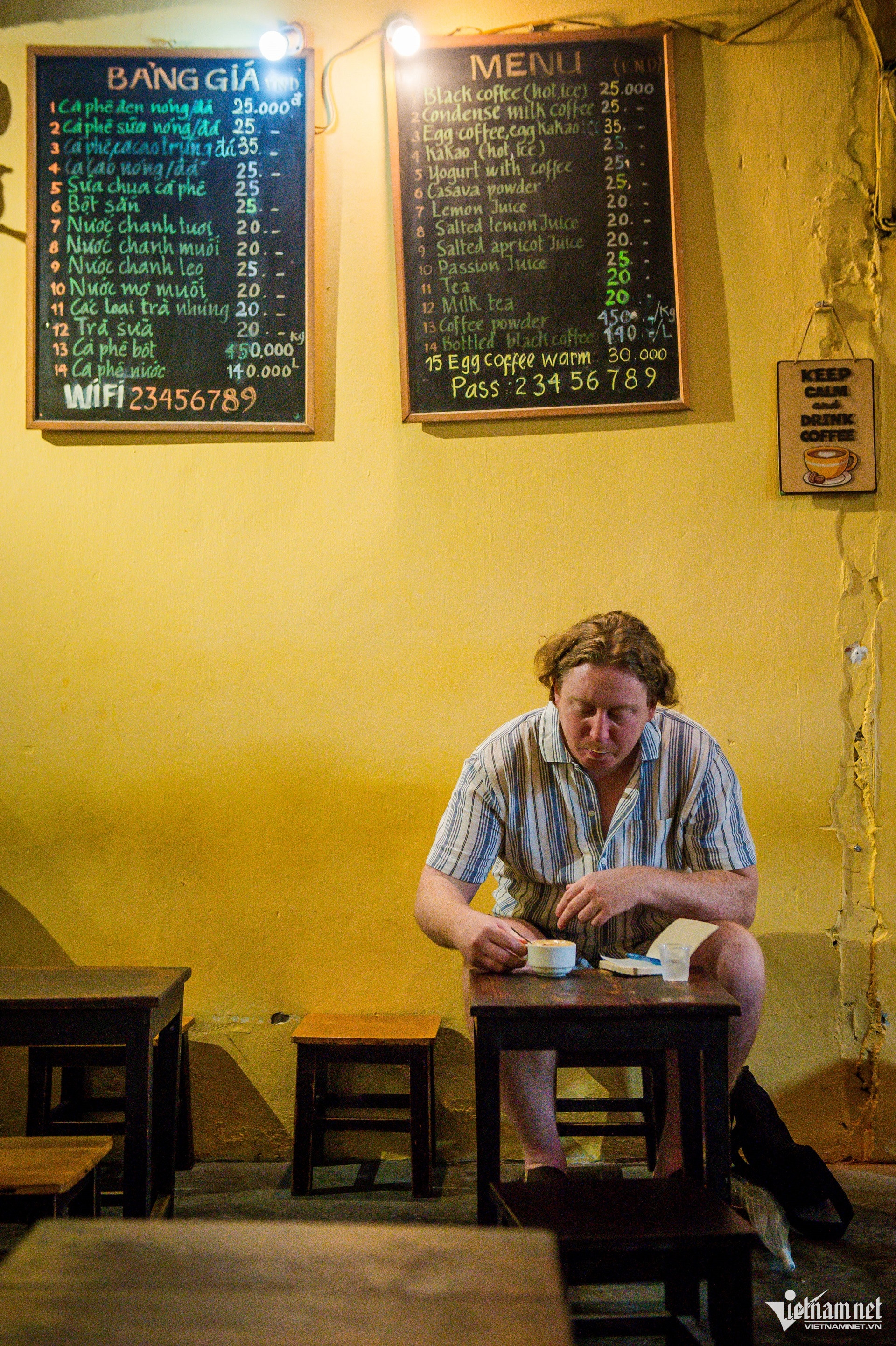
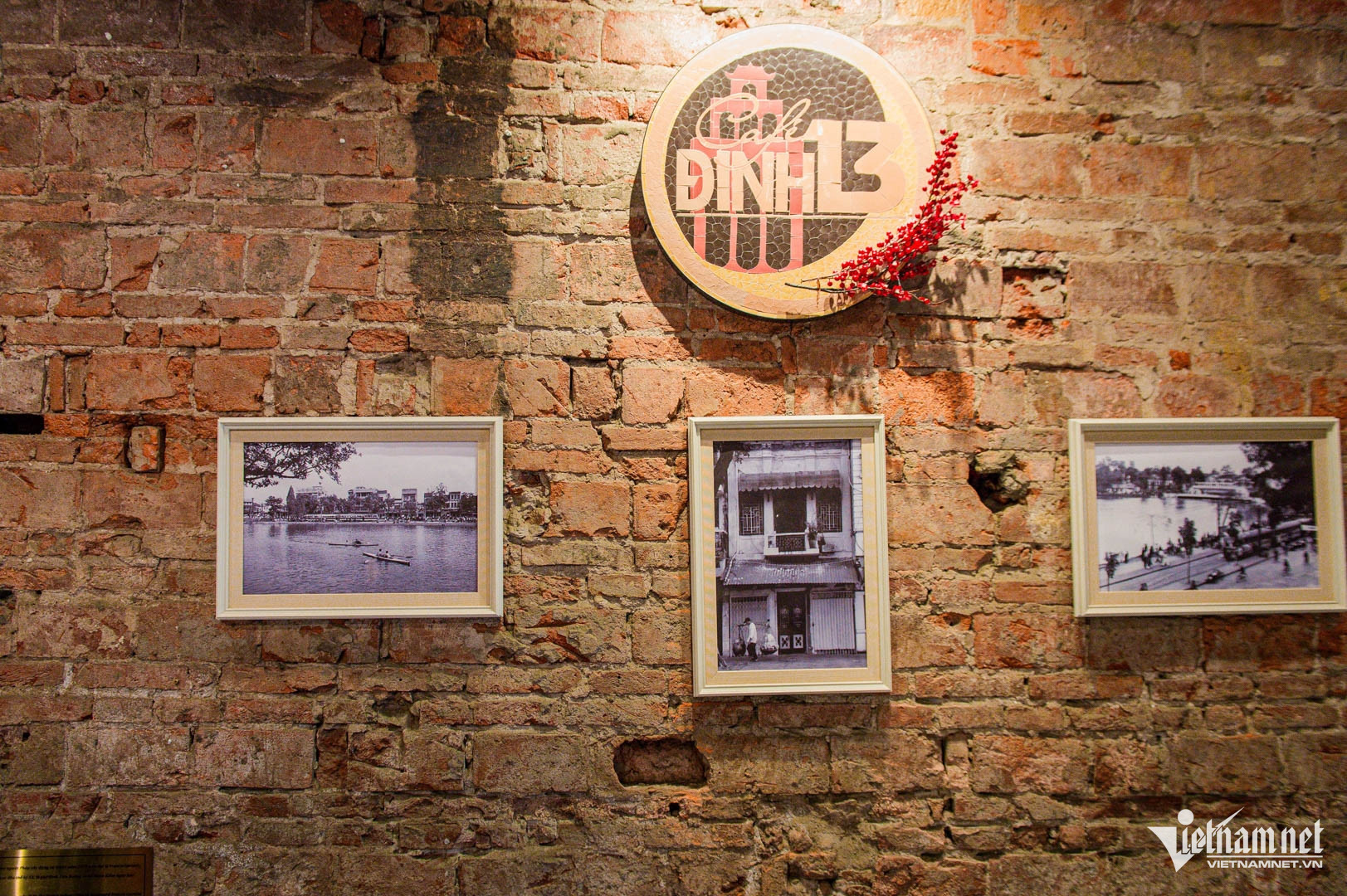
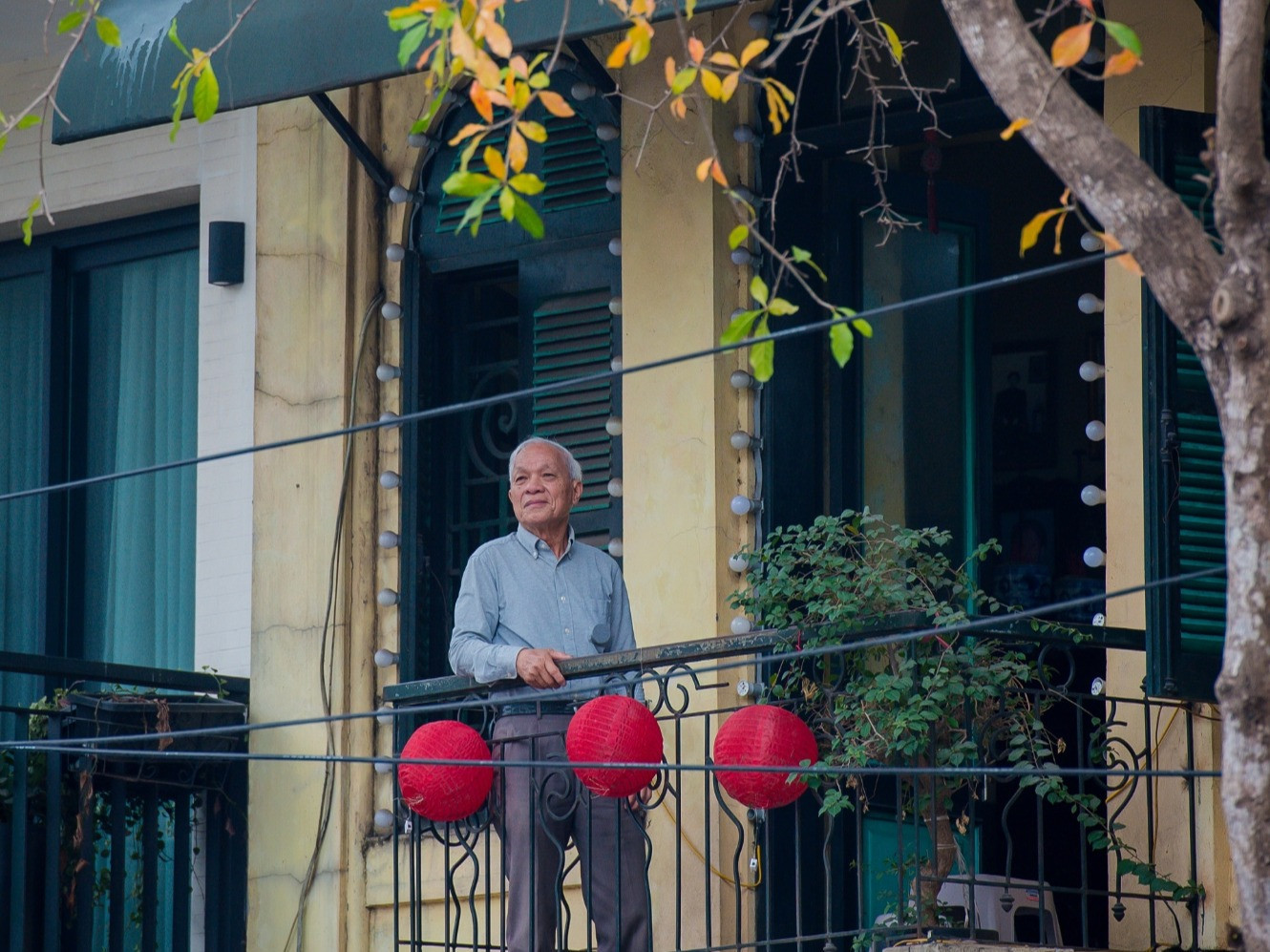
Linh Trang - The Son - Do An